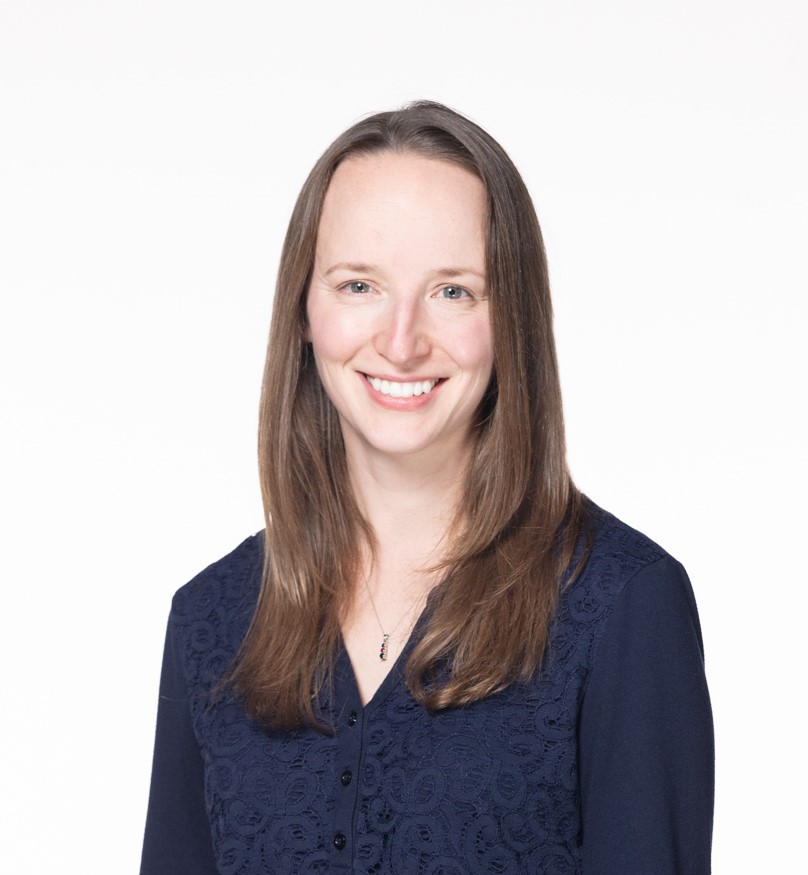Name: Elizabeth “Beth” Morse Luoma, Ph.D.
Class Year: 2009
Title: Director, Center for Teaching and Learning
Organization Name: Sacred Heart University
1. In one sentence, what does your job entail?
I direct a university center that provides academic support for students (e.g. tutoring, writing support, classroom learning assistance) and professional development for faculty and staff (e.g. workshops on effective and inclusive teaching practices). You can find out more at http://sacredheart.edu/ctl.
2. What planned and unplanned events connected you to your industry and your first employer after Holy Cross? How did you learn/decide it was a good fit for you?
The way I found my first job after Holy Cross was quite unplanned! I originally planned to apply for graduate school immediately following Holy Cross. I became a bit unsure (the Ph.D. is a long time!), so decided I wanted to explore some work experience first. During the fall of my senior year, I attended a junior/senior networking session in the Hogan Ballroom. There I met an alum who had a friend who was hiring a research technician. Though the purpose of the event was not to find a job, one email led to another and before I knew it, I was interviewing with my future boss, Dr. Jay Bradner, at Dana-Farber Cancer Institute in Boston. I learned so much from Jay and my other Dana-Farber colleagues during the time I worked in the Bradner lab. I was able to build on the skills I had learned as a research student in Rob Bellin’s lab to explore small molecule drug discovery in tissue culture models, resulting in three peer-reviewed publications. Ultimately, I knew I wanted to teach at the college level, so I did end up applying for graduate school and earning my Ph.D. in cell biology from Yale.
3. What were you involved in when you were on campus?
I was involved with SPUD (Student Programs for Urban Development) as an ESL (English as a Second Language) tutor, Science Ambassadors – a wonderful science outreach program for local schools, Biology Student Advisory Committee, playing flute in the 7PM Mass Contemporary Music Ensemble, and many retreats and programs through the Chaplains’ Office (Manresa, Magis Program, Spiritual Exercises, Alternative Spring Break). I did summer research in the lab of Nobel Laureate, Craig Mello, and co-taught a summer institute for Worcester Public School teachers with my advisor, Rob Bellin.
4. What was your major and how did it affect your career decisions?
I was a biology major with a biochemistry concentration and a member of the Honors Program. I knew upon entering Holy Cross that I wanted to be a biology major. I spent 8 years of my career working in various research labs, primarily focused on studying how cells attach to their environments via membrane proteins. Looking back, the two most common threads of my career have been science and education. Following my Ph.D. in cell biology, I worked as a STEM Education Program Director, Assistant Director of Women’s Health Research, and Assistant Director of Faculty Teaching Initiatives (all at Yale University). I am now Director of the Center for Teaching and Learning at Sacred Heart University. Though my current role no longer has me working at the lab bench, I use my scientific thinking and reasoning skills every day, from interpreting the research literature to project management, to “help teachers to teach and learners to learn” as my team likes to summarize our work. My core identity as a scientist helps me apply the science of learning and evidence-based practice to the work we do and to build relationships with our STEM faculty and students at Sacred Heart.
4. What are one or two skills that you developed at Holy Cross that you use in your work?
I truly believe I was able to make the career transition I did from laboratory scientist to higher education leader because of the well-rounded liberal arts education I received at Holy Cross. I so value the wide variety of courses I was able to take, from social psychology to ballet, entomology to a religious studies seminar called “Purity & Filth.” Having exposure to so many ways of thinking helped prepare me to take on a role working with faculty and students from across disciplines, and to think broadly and interdisciplinarily about teaching and learning trends in higher education. I am also deeply grateful for how Holy Cross taught me to write across disciplines, preparing me to publish in both science and education for a variety of audiences.
5. What advice do you have for students on campus today?
I can’t say I would have predicted when I graduated from Holy Cross 14 years ago that I would someday be directing a Center for Teaching and Learning. Each of my career steps were inspired by something “sparkly” that caught my eye on the periphery of what I was doing. For students on campus today, I would say certainly follow your current passions, but also don’t be afraid to explore something new and unexpectedly exciting that appears on your radar, now or in the future. These little sparks in our peripheral vision can potentially open entirely new worlds and possibilities to us, but only if we’re willing to turn our heads to look.



